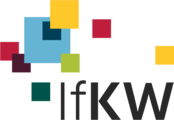
Here you can find a list of all doctoral projects of the Institute of Communication Science and doctoral candiates who are or were supervised by Prof. Dr. Monika Taddicken.
Uncivil communication and norm violations in online discourses around socio-scientific issues
Incivility is a growing concern as it has become a common feature of public online discourses, especially around politicians and political topics e.g. in the comment sections of news websites (e.g. Coe et al. 2015, Papacharissi 2004). Studies have shown increasing polarization effects towards a topic when perceiving topics in the context of observing uncivil discussions (Anderson et al. 2014). Also, discussants who use uncivil language are perceived as less credible (Ng & Detenber, 2005). This may negatively affect deliberative discourses. In her dissertation, Nicola Peters examines online discussions around socio-scientific issues such as the Covid-19 pandemic and climate change with regard to uncivil forms of communication. In doing so, she also addresses the question of how socio-scientific issues are discussed and negotiated.
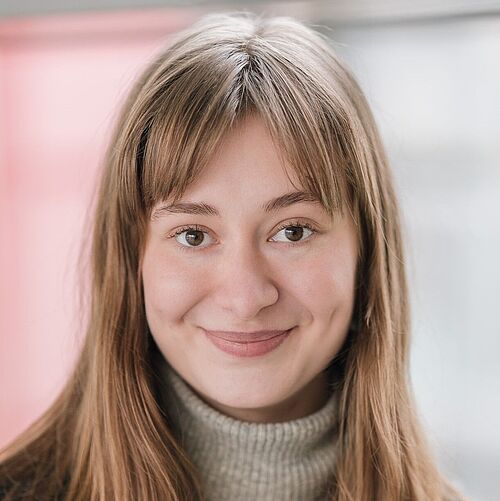
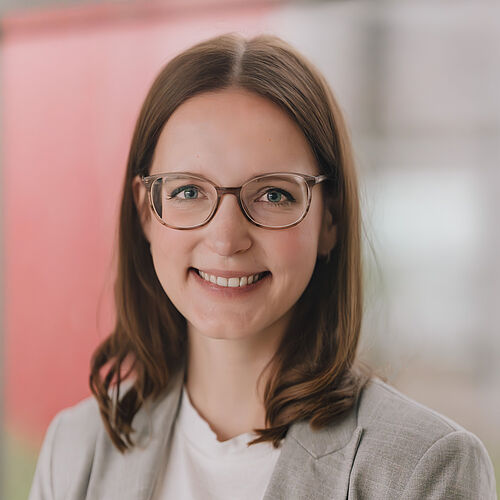
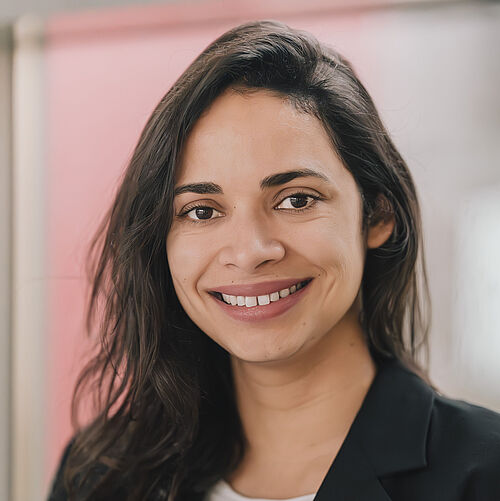
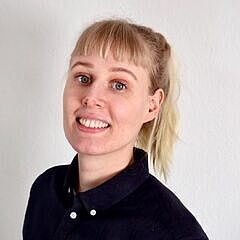
Communication of Measurement Data and Measurement Uncertainties Using the Example of the "City of the Future"
Measurement data and measurement uncertainties shape our everyday lives in many ways. However, the communication of measurement data and uncertainties is often neglected in science. Citizens are generally unfamiliar with basic measurement concepts. For this reason, Mona Wehming's cumulative dissertation focuses on the visual communication of measurement data and measurement uncertainties to non-experts. An evidence-based dashboard is being developed, which will be evaluated and optimized over the course of the project. The goal is to capture the perception of the dashboard, as well as the understanding and trust of non-experts in the information presented.
The project is part of the Smart Metrology Campus (SMC) project group of the Physikalisch-Technische Bundesanstalt (PTB).
Media literacy
Digital media have become an integral part of everyday life. But what skills and abilities are needed to use them? This is not just a matter of being able to use them. Other aspects such as critical handling or understanding algorithms also play a role, don't they?
Learn more.
Trust in science: Identification and analysis of trust-describing features in communicative content.
In the context of his cumulative dissertation, Justin Schröder deals with trust in science. He considers trust as a multidimensional construct and involves scientific actors on different levels. The investigation includes in a first step the identification of trust-describing characteristics in communicative content by means of qualitative content analysis. Subsequently, these results will be quantified and a methodology for automated text analysis will be developed.
The reviewers are Prof. Dr. Michael Brüggemann (University of Hamburg) and Prof. Dr. Monika Taddicken (TU Braunschweig).
Social Factors Influencing the Role Identities of Communicating Scientists
The communication of research results to a broader public is gaining importance in the everyday professional life of many scientists. What role does the self-image as a scientist play (professional identity)? Are social structures and processes at research institutions related to the importance of science communication in one's professional image? Lennart Banse addressed these and other questions in his cumulative dissertation. He examined the effects of growing expectations (e.g. from politics, research funding, scientific organisations or society as a whole) on the professional identity of scientists throughout the German science system. The work combined theoretical and empirical studies and resulted in five research papers that served as the basis for the doctoral thesis. The results of the studies suggest that reducing the promotion of science communication as an important and mandatory professional role for all scientists is a sensible way to avoid conflict with the existing identities of scientists.
The defense took place on 12/10/2025. The reviewers were Dr. Friederike Hendriks and Prof. Dr. Monika Taddicken. Prof. Dr. Christian Ebner was the chair of the committee. Prof. Dr. Barbara Thies was also part of the dissertation committe.
Public Communication of Scientific Experts on Social Media during the Covid-19 Pandemic
The communication of scientific experts via social media represents an important development in science communication. Scientific experts can engage directly with actors from politics, the media, and society via their own social media channels. The boundaries between different public arenas are becoming increasingly blurred in the online environment. Kaija Biermann examined the implications for the communication behavior and roles of scientific experts in her cumulative dissertation, using the COVID-19 pandemic as an example. The focus is on both the role performance and the online engagement of the public with their communication on these platforms, as well as their perception, particularly in comparison to perceived experts. The results of all studies taken together indicate a partial discrepancy between the actual role performance and the public's demand for evidence-based communication, as well as reluctance to express opinions and political statements.
The defense took place on 04/04/2025. The experts were Prof. Dr. Monika Taddicken and Prof. Dr. Nicole Krämer (University of Duisburg-Essen). Prof. Dr. Christian Ebner was the chair of the committee.
Coping with Complexity - Appropriation-Theoretical Concept and Investigations on the Online Communication of Scientific Topics
The increasing complexity of scientific topics poses a challenge for individual and social debate as well as for the public communication of these topics. Online, moreover, increasingly dynamic, interactive, and networked communication environments are emerging in which users themselves are now involved in the communicative construction of scientific topics and (have to) constantly establish coherence between communicated and received content. So far, however, there are hardly any insights into how scientific content is 'made one's own' in the course of online use and reception, i.e., how it is contextualized, evaluated, (further) communicated, and in this way developed and negotiated in a lifeworld context. Accordingly, the aim of the dissertation was to conceptualize and empirically investigate complexity coping in the context of online communication of science topics.
The defense took place on 11/04/2022.
The reviewers were Prof. Dr. Monika Taddicken and Prof. Dr. Rolf Nohr. Prof. Dr. Christian Ebner was the chair of the committee.
Public Opinion and Social Media - What Explanatory Content Do Classical Public Opinion Theories Still Have for the New Media?
"Public opinion" is a concept with implications for society as a whole. Debates about its formation and impact have recently increased under the impact of online communication, social media and related new forms of a networked and global public sphere. Social science theories of the public sphere form the scientific basis for research into this comprehensive and at the same time ambiguous phenomenon. To date, a few names dominate the field of research: Niklas Luhmann, Jürgen Habermas as well as Friedhelm Neidhardt and Jürgen Gerhards.
The defense took place on 12/16/2021.
The reviewers were Prof. Dr. Monika Taddicken and Prof. Dr. Nils C. Bandelow. Prof. Dr. Christian Ebner was the chair of the committee.
A question of quality expectations? Good science communication from the audience's perspective
In the context of her cumulative dissertation, Nina Wicke dealt with quality expectations of different science communication formats and their evaluation from the audience's perspective. Theoretically oriented on assumptions of Wolling's (2009) theory of subjective quality selection, she uses both qualitative and quantitative methods in four studies to investigate which content and design characteristics of formats are relevant and desirable from the audience's perspective. The work presents various dimensions of quality and aims to provide impetus for the further development of quality benchmarks and evaluation practices that are still barely anchored in the field.
The defense took place on 10/11/2021.
The reviewers were Prof. Dr. Monika Taddicken and Prof. Dr. Katharina Lobinger. Prof. Dr. Christian Ebner was the chair of the committee.
Trust in Science: Changing Conditions through Science Communication in Online Environments?
The aim of Anne Reif's cumulative dissertation was to shed light on the role of digital science communication for public trust in science. To do so, she used a novel theoretical approach that takes into account interdisciplinary trust research and structures potential changes in trust based on four trust conditions.
The defense took place on 03/26/2021.
The reviewers were Prof. Dr. Monika Taddicken and Prof. Dr. Peter Weingart. Prof. Dr. Christian Ebner was the chair of the committee.
Emotional user comments: The importance of emotions in the reception of user comments on online news
How public issues from politics and science are perceived and evaluated is closely linked to personal concern and emotional assessment by the recipient. Triggered emotions can be discharged in public discourses and thereby affect an objective negotiation process.
Susann Kohout's defense took place on the 25th of January, 2021.
The reviewers were Prof. Dr. Monika Taddicken and Prof. Dr. Stephan Winter.
Citizen Science Communication - Theory, Practice and Application
Citizen science is growing as a field of research with contributions from diverse disciplines, promoting innovation in science, society and policy. The involvement of members of society in the research process means a fundamental change in science communication. It changes the understanding of science communication as external communication from science to the public into an understanding of communication and knowledge exchange to and with members of society who are now part of the inner research process. The PhD focuses on the conceptual understanding of science communication in citizen science and will critically explore the practice of science communication as well as applications of communication tools in citizen science projects.
Susanne Hecker's defense took place on the 24th of July, 2020.
"Fancy voting digitally?" Digitalization of intra-party decision-making processes - The intention of members to participate in elections and voting via the internet in the party
A study using the example of SPD party members in the Braunschweig region. The work drafts the vision of a complementary offer of intra-party participation via the internet at then lowest structural level. For a regional example, she uses the theory of planned behavior (Fishbein/Ajzen) to test the participation (intentions) of different party members, the requirements and conditions for this new form of participation, and the background. In a further step, as an analysis of the potential of the 'modern' party it is intended to provide information on the successful implementation of the idea.